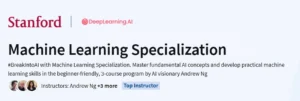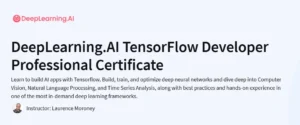What will you learn in this Practical Time Series Analysis Course
Understand the fundamentals of time series analysis, including concepts like stationarity, autocorrelation, and seasonality.
Apply statistical models such as Moving Average (MA), Autoregressive (AR), ARMA, ARIMA, and SARIMA to real-world data.
Utilize R programming for data visualization, model building, and forecasting.
Implement techniques for model selection, parameter estimation, and diagnostic checking.
Program Overview
1. Basic Statistics
⏳ 3 hours
Review essential statistical concepts and get started with R programming.
2. Visualizing Time Series and Beginning to Model Time Series
⏳ 3 hours
Learn to visualize time series data and introduce basic modeling techniques.
3. Stationarity, MA(q), and AR(p) Processes
⏳ 5 hours
Delve into stationarity concepts and explore Moving Average and Autoregressive processes.
4. AR(p) Processes, Yule-Walker Equations, PACF
⏳ 5 hours
Understand the Yule-Walker equations and Partial Autocorrelation Function for AR models.
5. Akaike Information Criterion (AIC), Mixed Models, Integrated Models
⏳ 5 hours
Learn about model selection using AIC and explore ARMA and ARIMA models.
6. Seasonality, SARIMA, Forecasting
⏳ 4 hours
Address seasonal components in time series and implement SARIMA models for forecasting.
Get certificate
Job Outlook
Equips learners for roles such as Data Analyst, Forecasting Analyst, and Quantitative Researcher.
Applicable in industries like finance, economics, environmental science, and supply chain management.
Enhances employability by providing practical skills in time series modeling and forecasting.
Supports career advancement in fields requiring expertise in temporal data analysis.
Specification: Practical Time Series Analysis
|
FAQs
- Basic experience with R programming is required.
- Familiarity with statistical concepts like mean, variance, and correlation helps.
- Absolute beginners may struggle with advanced modeling topics.
- Review of statistics prior to starting can improve understanding.
- Course is designed for learners with at least intermediate data analysis skills.
- Covers AR, MA, ARMA, ARIMA, and SARIMA models for forecasting.
- Teaches visualization and model diagnostics to validate predictions.
- Applicable in finance, economics, and supply chain analysis.
- Hands-on projects simulate real-world data scenarios.
- Builds skills to analyze temporal trends and make data-driven decisions.
- Medium-level difficulty requiring consistent practice.
- Total course hours can be spread over several weeks.
- Hands-on labs allow incremental learning at your own pace.
- Lifetime access enables revisiting modules for reinforcement.
- Advanced topics like SARIMA may require additional review.
- Equips learners for roles like Data Analyst, Forecasting Analyst, and Quantitative Researcher.
- Provides practical experience in model selection and parameter estimation.
- Enhances employability in finance, economics, and environmental sciences.
- Builds portfolio-ready projects demonstrating time series modeling.
- Supports progression to advanced predictive analytics roles.
- Skills apply in supply chain, marketing analytics, and environmental data.
- Techniques for model selection and forecasting are universal for temporal data.
- Visualization methods help communicate insights across industries.
- Projects can be adapted to any domain with time-series datasets.
- Prepares learners to interpret trends in non-financial contexts effectively.





